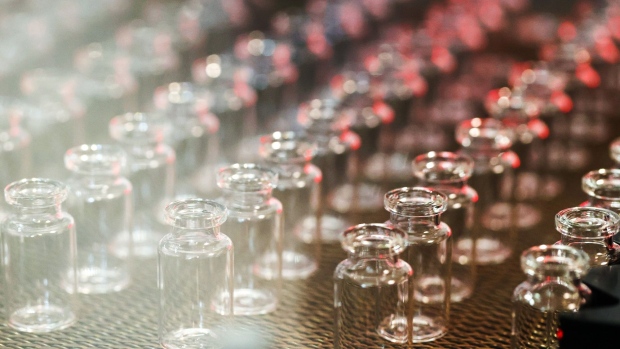Feb 4, 2021
J&J seeks emergency clearance for COVID-19 vaccine in U.S.
, Bloomberg News

Johnson & Johnson asked U.S. drug regulators to clear its experimental COVID-19 vaccine for emergency use, setting off a review process that could lead to millions more doses becoming available to step up a stumbling immunization drive.
The drugmaker said in a statement Thursday that it had filed an application for an emergency-use authorization with the U.S. Food and Drug Administration. If cleared, the shot would give the U.S. a third vaccine to try to halt a pandemic that has killed more than 450,000 Americans.
In the coming weeks FDA officials will examine J&J’s trial data, and the agency scheduled a Feb. 26 meeting at which a panel of outside advisers will consider the request for clearance and make a recommendation about whether to grant it. While its decision isn’t binding, it is unusual for the FDA to reject the experts’ advice.
Vaccines from Moderna Inc. and partners Pfizer Inc. and BioNTech SE have already been given a similar clearance. Both were found to be more than 90 per cent effective in clinical studies, and are given in two doses spaced several weeks apart.
J&J’s vaccine was found to be 72 per cent effective in the U.S. in preventing moderate to severe COVID-19 after a single shot, and 66 per cent effective overall in a global trial. It was 100 per cent effective in preventing hospitalization and death.
Paul Stoffels, J&J’s chief scientific officer, said the company would be ready to begin shipping vaccines upon receiving an authorization.
“With our submission to the FDA and our ongoing reviews with other health authorities around the world, we are working with great urgency to make our investigational vaccine available to the public as quickly as possible,” Stoffels said in the statement.
Shares of J&J gained 1.5 per cent in after-hours trading in New York. Over the past 12 months, the stock has advanced 6.85 per cent.
Variant Questions
One question likely to be in focus as experts consider the vaccine’s potential authorization is its effectiveness against new variants of the coronavirus. While J&J’s shot was 85 per cent effective across the board in preventing severe disease, there were indications it could be less potent against new viral mutations that have caused infections to rise in some countries.
In South Africa, where a variant called B.1.351 is circulating widely, the vaccine was only 57 per cent effective. And the shot was 66 per cent effective in Latin America, where another mutation has caused cases to climb in Brazil. Both have recently surfaced in the U.S., though there isn’t yet a clear indication that any are widespread.
The FDA said in a separate statement on Thursday that the agency has been communicating with drugmakers and developing guidelines for vaccine developers as they evaluate how their products will be affected by variants. The agency is “currently deliberating and discussing the types of data needed to support changes in the composition of the vaccine,” said acting FDA Commissioner Janet Woodcock.
U.S. officials emphasized the J&J shot’s proficiency at preventing the worst forms of COVID-19 at a news briefing last week.
“If you can prevent severe disease in a high percentage of individuals, that will alleviate so much of the stress and human suffering” of the pandemic, said Anthony Fauci, the top U.S. infectious-disease official.
J&J has previously indicated it expected an emergency clearance as soon as March, and that it would have millions of doses ready to ship upon receiving a nod from regulators. It has vowed to deliver 100 million doses to the U.S. by the end of June, and maintains that it will be able to meet all other supply commitments.
-- With assistance from Anna Edney.


